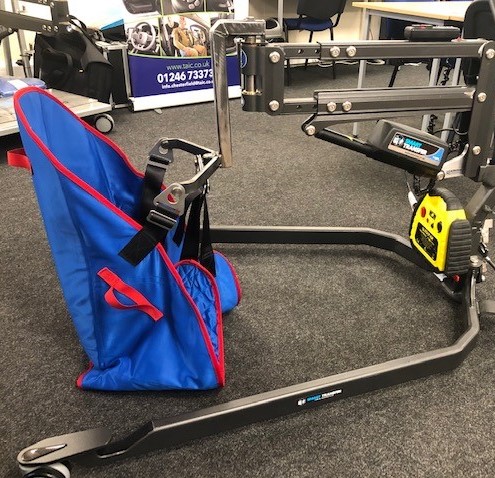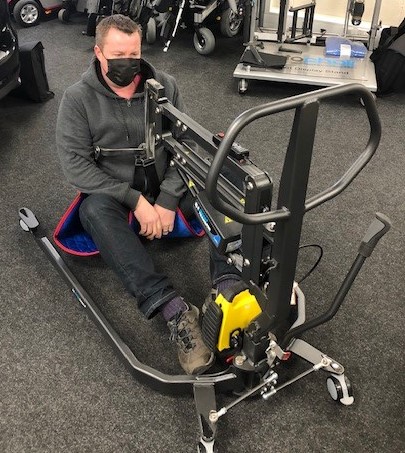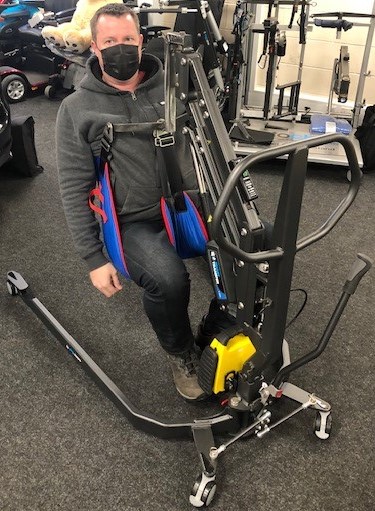Managing the Rescuer when Addressing Falls
Sponsored Article by Medical Guardian
With an aging population on the horizon for many societies, doctors in all specialties are encountering older patients who have fallen, coming under their care. Often with multiple chronic diseases, falls in the elderly are a major concern. Falls cause fractures, loss of confidence & subsequently, patients deteriorate & may require expensive institutional care.
While much of the academic papers are concentrated on the risk management of falls in the elderly patient, little attention is given to risks encountered by the rescuer. Health & Safety legislation is there to provide for the protection of workers in places of employment. Healthcare in itself is already stressful. The Healthcare sector should broaden its risk management remit to include the care of the rescuer too. Without addressing risks to the rescuer in the management of falls could be viewed as somewhat negligent as damage to backs, necks & shoulders injuries, hernias are very real. With fast increasing levels of aging & obesity within society, increasing rates of injuries to rescuers can no longer be ignored.
Falls are one of the most common contributory factors to many avoidable hospitalizations with public costs implications in addressing the care of the elderly & the disabled. In 2015, the estimated medical costs attributed to fatal & non-fatal falls in the USA was approximately 50 billion 1 without factoring in the costs of lost man-hours, injury compensation, medical bills, or for lasting injuries sustained by the rescuer.
In aging, as bones, cartilage & muscles weakened, falls are almost inevitable. Eyesight, hearing, spatial acuity, concentration, lack of muscle tone, Osteoporosis, circulation & cardiac problems, dementia, medication, ear infection are some contributing issues of disturbance in the mechanisms of balance. Common chronic diseases like diabetes, high blood pressure in causing lack of good circulation can lead to Diabetic ulcers or lack of perfusion to the brain in turn leads to blackouts & subsequently, falls. In cases where patients have suffered Strokes, body mechanics is totally out of sync. When falls occur, rescuers are in more danger as patients are often unable to co-operate by following instructions for a manual coordinated lift off the floor.
Obesity is an issue that impacts the management of falls. For the rescuer, the weight of the subject about the physical capabilities of the rescuers on-site can often be a mismatch. While this mismatch is better addressed by the rescue services, institutional care & employers in homes cannot often provide an adequate safeguard for their staff.



Training is important but the availability of equipment is key.
Staff in hospitals & care homes are often required to lift patients directly from the floor into wheelchairs or beds. Lifting from the floor up is extremely stressful & dangerous for the rescuer. A good lifting technique requires knees bent & backs straight, before executing a lift. In minimizing torque to the back, movements should be as neutral where possible to prevent the spine from bending sharply or being contorted.
However, a rescuer to execute a lift from the floor is required to be in a kneeling or squatting position. This puts extreme stress on his or her knees & back even before the lift is being executed. This extreme stress is further exacerbated if rescuers themselves are small built, overweight, have medical issues, or are themselves, older. Injuries are bound to happen.
Securely hoisting a person off the floor will offer the best solution. Even if the lift is not fully to the height of the wheelchair, chair, or bed, the deficit can be safely undertaken by the rescuer by ensuring good posture.
In-home care, repeatedly undertaking a lifting maneuver, not even necessarily from the floor time again & again, can cause repetitive stress injuries. Thus, no matter how well trained a domestic helper is, alone executing lifting of an elderly repeatedly should be looked at as a breach or lapse under the Health & Safety provision & Employment Laws of a jurisdiction. In general, the recommendation is never to lift or carry a patient alone manually unless with a mechanical lifter.
Other areas where falls are common are in malls. While many incidences such as slips & trips will not necessarily require calling on the rescue services, these are the incidences that a person lifter, able to hoist a person off the floor into a seat, is very much needed.
Person hoist in the market today, few can provide the stability & robustness for such a difficult & complex lift. Autochair however, an established UK manufacturer for a range of products for the aged & disability market, is bringing in the adaptation for this very purpose. With a long-established history of the manufacture of safe, reliable & effective adaptive hoisting mechanism, the new addition is keenly anticipated. www.autochair.co.uk
Medical Guardian Pte Ltd is the sole agent for the Autochair range of products in Singapore & ASEAN. A vehicle, fully equipped with the person hoist, the Smart Transfer & boot lifter for a wheelchair, scooters, powerchair, etc., the Smart Lifter is available for demonstration. Smartbase is a person hoist that is unique as it is foldable, flat-packed & transportable. Ideal as an HSE ‘must-have’ in homes, institutions, or any public amenities or areas.
Truly inspirational. Translation products for complete Home, Institutional & Transit care. www.medicalguardian.com.sg More videos are on Facebook.
Contact us today.
WA: +65 98195719
Email:
Facebook: Medical Guardian Service

